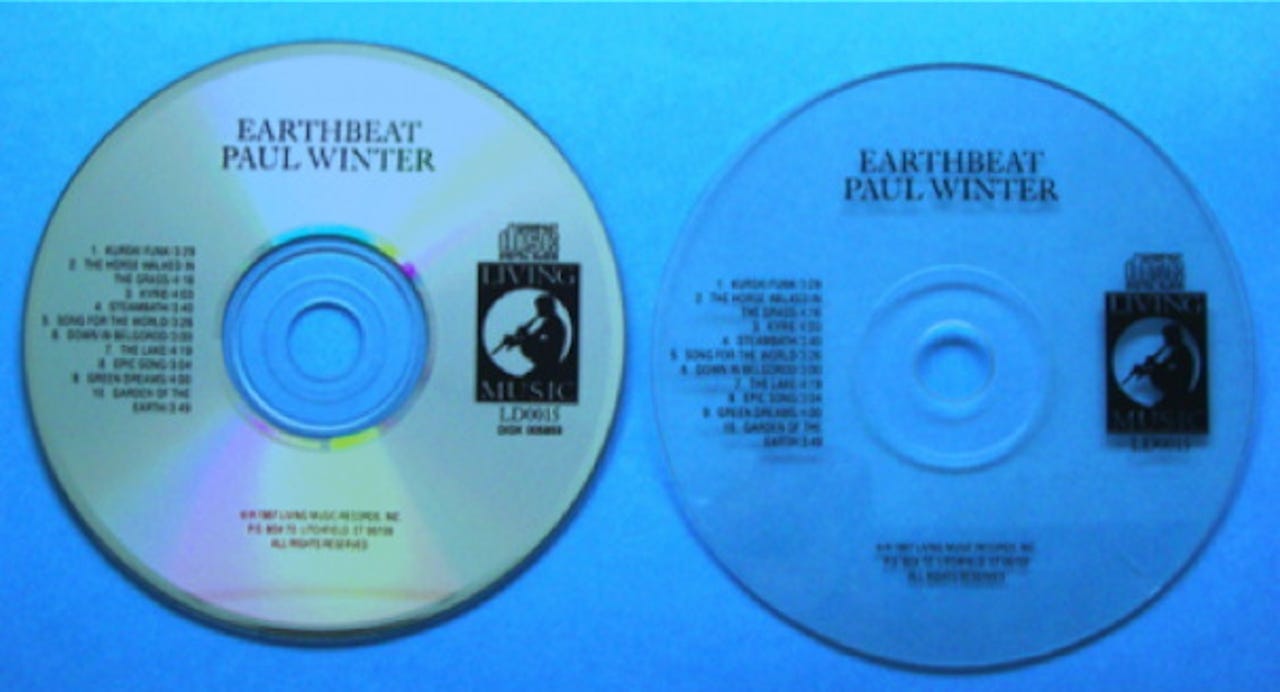Are your CDs dying?

Take two copies of the same manufactured CD from 1987 and subject to extreme heat and humidity in an environmental test chamber. Should turn out the same, right? No:

The one of the right is totally destroyed, while the one on the left is still playable. Why?
Commercially reproduced CDs — the kind from major music labels — are manufactured using a physical stamping on the plastic which is given a metallic coating to reflect the laser light - a physical imprint on the media. Writable CDs and most writable DVDs and Blu-rays use a chemical organic dye layer that is inherently unstable and will often die within five years.
Featured
According to the Library of Congress, even commercial CDs made in the same year by the same company can have very different production processes leading to startling differences in failure rates and modes. For example:
- Edge rot. Oxygen seeps through the plastic and reacts with the metal layer.
- Bronzing. Corrosion due to pollutants in the air.
- Laser burn. Player lasers also differ and some may shorten CD life.
- Mis-handling. Bad scratches, yes, but also stickers and permanent marker writing on top.
The Storage Bits take
If you haven't already ripped your treasured CDs yet, now's the time! Whether you pick a lossless codec or high quality mp3, you can't rely on a commercial CD's quality to protect music you love.
The LoC is researching this issue, in line with their mission to store and protect American history, through their Center for the Library's Analytical Scientific Samples (CLASS). They're putting together a database of scientific information on many kinds of media, including CDs.
If there's something you want to save for the long term, consider writing it to an M-disc, whose non-organic write layer can sustain remarkable amounts of abuse (see Torture testing the 1,000-year DVD). It's the only media I'd trust for long-term digital storage — and only if I store copies in different places.
Comments welcome, of course. And a hat tip to the excellent Atlantic magazine for a piece on this issue.